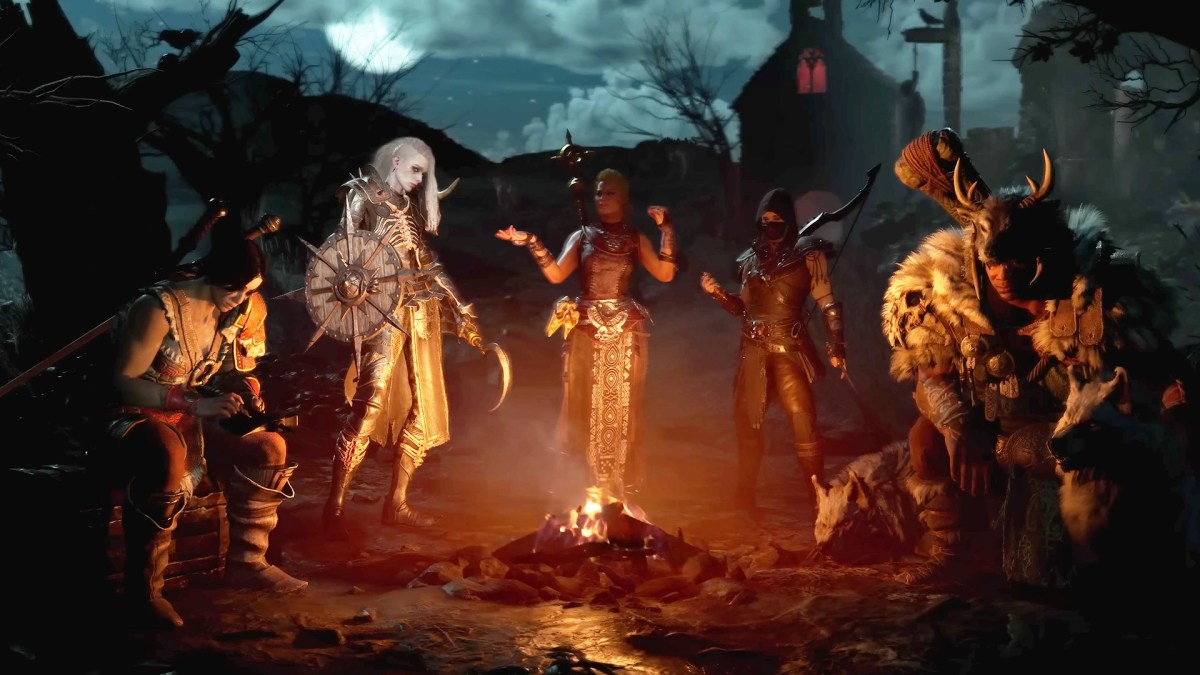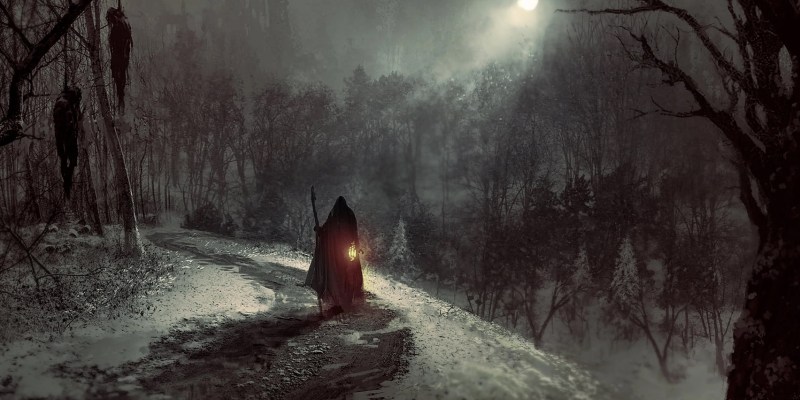After over a decade, the latest installment of the dungeon-crawling Diablo franchise comes knocking. And after a 45-minute wait in the menu queue, I stepped into Sanctuary, Diablo IV’s take on a decaying world rich in loot and lore. While Blizzard did mention a shared experience, the occasional player walking about caught me off guard. The Diablo IV take on the live-service format sits between clustered MMOs and the lonelier adventures of its predecessors.
Meeting strangers doesn’t happen often enough to rob your “chosen one” energy. But an emote wheel and the ability to clear world events with random players push Diablo IV towards MMO territory. As someone who likes exploring dungeons alone, I found this concerning. But my fears were laid to rest when I noticed players just doing their own thing. While a connected world would let Blizzard’s “cosmetic purchases” shine, seeing a necromancer adorned in red only tempted me to explore the game’s secrets to find their killer outfit.
With a Japanese username bobbing under their character, the necromancer waved at me. One spin of the emote wheel later, I greeted them back. Having opted for the deadly but frail Rogue class, anyone could make for good company. While quests are only yours to pursue, watching the stranger speak to the quest giver I just spoke to meant that we now shared a goal, if only in spirit. On our way to the thug we needed to beat gems out of, our intrepid party came upon a caravan, one wheel deep in mud. We entered a little circle only to be swarmed by packs of wolves and their supernatural brethren.
Stumbling into Diablo IV’s random events with an ally meant I could focus on damage-dealing as they kept claws and teeth at bay. I’m glad the werewolf pack didn’t get to scatter my remains across the Fractured Peaks. After a timer ran out, the wolves stopped teleporting towards the caravan and retreated. As a reward, a chest emptied its contents before us.

Diablo IV doesn’t ask you to share your loot. Instead, it provides each player with items specific to their class. I’ve got mixed feelings about this simplification. The “wear what fits and sell what doesn’t” gives RPGs a sense of scale by showing items that don’t suit your character class / level. While “smart loot” might make min-maxing character stats simple for casual players, it discourages trading rarer weapons between players of different classes. My stock of epic crossbows meant little to the kind necromancer.
Once the quest was done, we headed off in different directions. On my way to the nearest city, I spotted an inactive barbarian. Diablo IV’s character menu only covers a third of the screen, so this player was certainly not just admiring their loot. I didn’t slow my pace until I heard the sound of monsters. The AFK player became a sidequest in itself as I cut down the creatures that approached them. Having done my good deed for the day, I decided to pivot back towards the main quest line.
The MMO-esque inclination of Diablo IV ends here as its social options don’t interfere with the main cutscenes and plot. I lost myself in the hunt for Lilith’s followers and the best builds, free from the shenanigans of other players. But as you enter one of Diablo IV’s towns (cough, social hubs), you’re bound to find players running between the same quest givers and shops. While the shops didn’t have a horde of stationary players like in traditional MMOs, the game does have text channels exclusive to trade. Blizzard tiptoes on the line between its dungeon-crawling legacy and the massive player experiences that are commonplace today. I’m curious to see if this line gets redrawn based on how players react to its interconnected systems when it releases this June.
